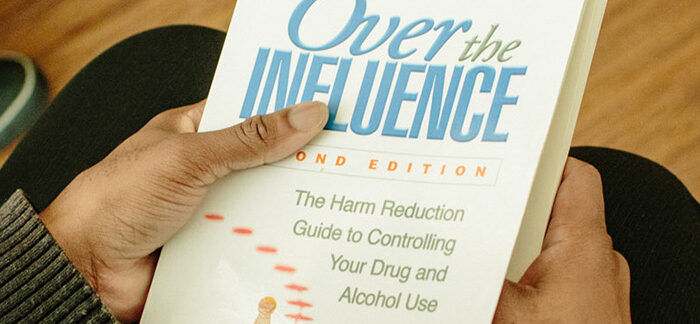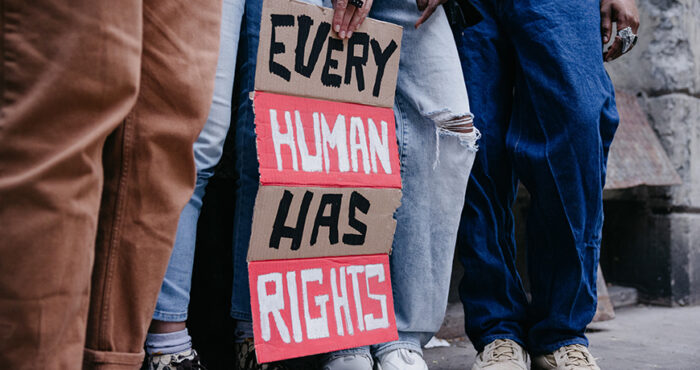He used drugs; his heart was oversized. So, he died. These were the offensive remarks by the attorney defending George Floyd’s murderer. Folks who use drugs in the San Francisco Bay Area (and everywhere) live daily with similar reminders–both subtle and explicit–that people who use drugs are lesser than. That any harm that may befall them can be attributed to their drug use. That their lives are worth less.
The words we use to talk about drug use and people who use drugs matter. Because the lives of people who use drugs matter.
“There are a lot of stereotypes assigned to people who use drugs,” said Kelani Clark, a health educator for Syringe Access Services at San Francisco AIDS Foundation. “People assume that they are drug addicts, that they are thieves, that they are dangerous. There is so much stigma on all parts of drug culture–particularly of folks who inject.”
“Negative stereotypes are oftentimes reflected and reinforced by the language used to describe people who use drugs,” said Ro Giuliano, director of Syringe Access Services. “Terms like ‘drug addict,’ and ‘alcoholic,’ are laden with judgement and stigma. They only serve to ‘other’ people who use drugs.”
Recently, Carl Hart, PhD, a neuroscientist and professor at Columbia University, made headline news with his book Drug Use for Grown-ups: Chasing Liberty in the Land of Fear. Challenging the shame and stigma of drug use, Dr. Hart describes his own regular heroin use, saying that he is “better for [his] drug use.”
Racism, poverty, punitive drug criminalization laws, and of course stigma cause harms associated with drug use, says Dr. Hart, not necessarily the drugs themselves.
“Recreational drug use is an activity engaged in by millions of closeted adults around the globe. Now that I have learned that taking drugs to alter one’s state of being isn’t as dangerous as I had been taught, I share my story in an effort to encourage others, especially successful professionals who are less at risk than people on the margins of society, to get out of the closet about their own drug use… Fear allows the broader society to retain its caricatured view of drug users as irresponsible and troubled souls, who then can be summarily demonized and marginalized,” Dr. Hart writes.
What’s the harm?
Both Clark and Giuliano conduct trainings on using inclusive, non-judgmental language when speaking about drug use or connecting with people who use drugs. They said that it’s especially important for volunteers and staff who work with people who use drugs to keep their language around drug use neutral. The language we use toward people who use drugs must be non-judgmental, because language can create barriers to health, said Clark and Giuliano.
“If you call someone a druggie or crackhead, these words are not just descriptors, they are condemnations,” said Clark. “People who hear this language may feel a sense of failure, and that they’re being judged regardless of what they bring to the table.”
Whether it’s language being used in the media, by staff who serve people who use drugs, or with friends or family, using person-first, respectful language to describe people who use drugs is critical. Giuliano and Clark say that language like “person who uses drugs” instead of “drug user” places the individual in a position of individuality, autonomy, and power. Language like this recognizes that people are so much more than their substance use.
When it comes to service delivery, inclusive, non-judgmental language can bring people into services. In a time when overdose is claiming the lives of about two San Franciscans daily, the case for better connection to substance use services is clear.
“Welcoming language is a way to build a relationship with someone first,” said Giuliano. “Someone might come to us regularly just to get new syringes but at one point they say, ‘Oh yeah, I want to get a hepatitis C test too.’ But language can also shut down the conversation. It can make someone not want to access care. So we really think about how we include people in the way that we speak.”
Find tips on inclusive language to use when speaking with or about people who use drugs. Please note that language changes, and that there may be nuances missed in any “guide.” In any situation, placing the person who uses drugs first gives them the power to describe their own experience in a way that is respectful and safe.










